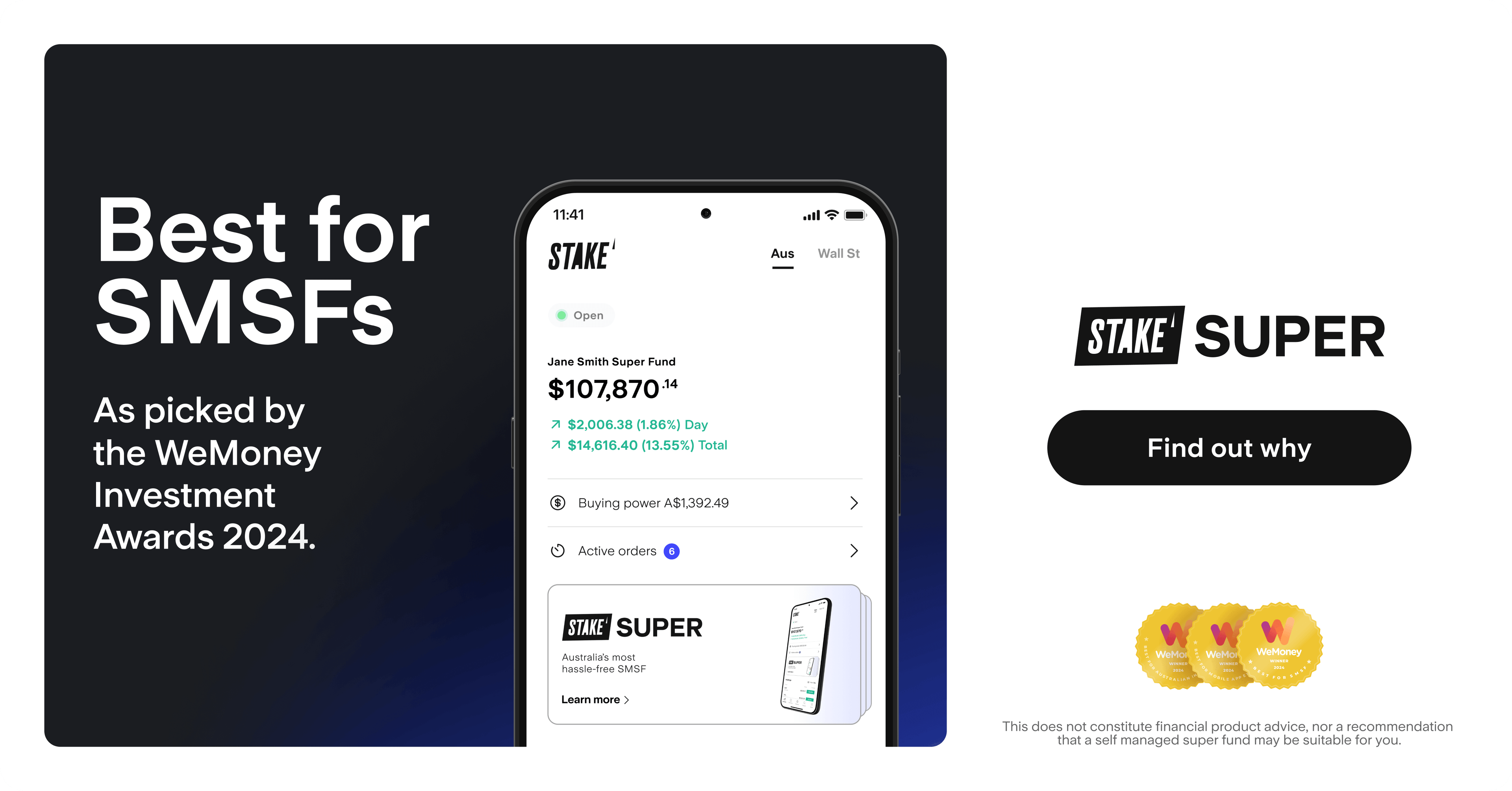
SMSF Setup Costs: Comprehensive Guide to SMSF Fees [2025]
SMSF fees can often feel like a minefield with unexpected costs lurking around every corner, so we’ve created this simple guide to help provide clarity on the world of SMSF costs.
What are the costs associated with setting up an SMSF?
SMSFs have initial and ongoing expenses which can vary significantly depending on the investments in your SMSF and the service providers used to set-up and manage the administration of your fund.
Set-up costs
An SMSF is a type of trust and setting up a trust requires a trust deed. This is the legal document that sets out the rules for creating and operating your fund and needs to be prepared by a competent person.
The total establishment costs can be determined by whether or not the SMSF is structured as either individual trustees or corporate trustees.
For corporate trustee SMSFs, the Australian Securities and Investments Commission (ASIC) charges a fee to register a special purpose company for the first time which is currently $576.
However, different SMSF administrators pass on different costs ranging from $0 in Stake Super's case to well over $1,000 with some administrators.
See below for a comparison of set-up costs among different SMSF administrators (accurate as of 10 March 2025):
Fee | Stake Super | Growsmsf | Super Concepts | esuperfund | Heffron | Bell Direct |
|---|---|---|---|---|---|---|
Set-up fee | $0 | $798 | $650 | $0 | $550 | $399 |
Corporate trustee establishment fee | $0* | $597 | $990 | $799 | $990 | $780 |
Total set up costs | $0 | $1,395 | $1,640 | $799 | $1,540 | $1,179 |
*Included in the first year accounting fee.
SMSF administrators can either break down activities into multiple expenses or bundle several together. They can also cover additional tasks that streamline the process with the Australian Tax Office (ATO).
These often include applying for an ABN and TFN for your SMSF and registering it to receive contributions and transfers. Setting up a bank account to receive contributions, transferring your existing superannuation balance and providing ongoing support throughout the process can all also be completed by them.
If you'd like a professional opinion on which investments are most appropriate for you, getting personal financial advice will also come at a price. Additional documentation is also needed if you plan to borrow funds to invest in property through your SMSF needed, as the property or asset will be held in a separate trust.
Operating costs
There are specific annual payments and various operating costs involved with a self-managed superannuation fund. SMSFs need to comply with the relevant laws and are checked every year through an audit process.
There are a few annual outlays to keep in mind to ensure your SMSF is compliant with financial and legal regulations:
- Accounting and audit fees (although in some cases these are combined into one amount)
- ATO supervisory levy: Currently $259 (this fee is netted in the fund’s annual return)
- ASIC Special Purpose Company maintenance fee: currently $67 (for corporate trustee SMSFs only)
- Service providers and financial advisors could also have other annual costs.
SMSF trustees should also allow room for other common costs that may include the following:
- Transaction costs for investments can range from a few dollars to buy a share to significant amounts for property.
- Various platforms for investment and third-party services could require payments for access, tasks and administration.
- Insurance expenses will depend on your personal situation, type and degree of coverage.
- Costs associated with being in the pension phase, such as generating an annual Actuarial Certificate to determine what percentage of an SMSF’s income is exempt and hence tax-free.
- It could be prudent to account for taxes too, as SMSFs might have to prepay certain instalments or withhold tax on payments to members.
Below is a comparison of key annual SMSF fees charged by different SMSF administrators (accurate as of 10 March 2025):
Fee | Stake Super | Growsmsf | Super Concepts | eSuperfund | Heffron | Bell Direct |
Annual accounting fee | From $990 | From $1,430 | From $1,100 | $1,399 | $2,520 | $1,190 |
Annual audit fee | Incl. in accounting fee | Incl. in accounting fee | $539 | Incl. in accounting fee | $570 | $290 |
Annual ASIC Special Purpose Company maintenance fee | $67* | $65* | $110* | $65* | $176* | $290* |
Annual ATO supervisory levy | $259 | $259 | $259 | $259 | $259 | $259 |
*Only applicable for corporate trustee SMSFs.
Investment management fees
Some investments have management fees and the amounts applicable to your SMSF will be influenced by its investment strategy. Some examples are set out below:
- Financial advisers and wealth managers could ask for fixed and/or percentage fees depending on the value of your SMSF or investment with them.
- Managed funds usually have percentage costs related to the amount of funds invested in them. Additional performance, contribution and withdrawal costs could also apply.
- Exchange-traded funds (ETFs) charge shareholders a managed expense ratio (MER) to hold units. Performance fees also apply to some actively managed ETFs.
- An investment property has ongoing costs such as interest, maintenance, insurance and council rates.
How much does it typically cost to run an SMSF?
A 2020 SMSF Association report revealed that full annual administration costs, ASIC levy and the ATO levy ranged from $1,514 to $3,074 for SMSFs in the accumulation stage. A few providers since then, including Stake Super, have managed to bring down costs even further.
Direct investment fees are very dependent on specific assets in the SMSF and are hard to compare. On average property tends to be more expensive than shares. For trading products ranging from cheap ETFs to actively managed funds, investment fees ranged from 0.07% to 1.75%.
The level of control SMSFs provide over your investments provides trustees with the opportunity to reduce the overall expense ratio, but this is dependent on your super balance and higher balances tend to benefit from lower overall expense ratios. This ratio involves summing the various expenses and comparing them to the SMSFs total assets.
Are SMSF setup and operating expenses tax deductible?
A tax deduction could apply to certain SMSF costs.
To qualify, the charge must be related to how the SMSF fund earns taxable income. The invoices should be in the SMSFs name, as they are deducted from the fund and its earnings rather than from any of the members.
Deductions don't apply if the charge has capital, private or domestic characteristics. Capital costs tend to be one-time payments. Setup fees involved in the establishment of the SMSF fall in this category and are not tax deductible.
The brokerage cost to invest in a share or ETF would also be a capital cost. Some deductions could apply for purchases that are depreciating assets, such as buying a refrigerator.
Common SMSF tax-deductible expenses are listed below:
- Operating costs including management and administration fees for day-to-day obligations, ATO supervisory levy, audit and ASIC annual fees.
- Certain investment expenses such as those from interest, advisor fees for ongoing management, rental properties and some subscriptions.
- Tax-related activities including preparation for the annual return and actuarial costs.
- A number of legal matters like trust deed amendments, but others can be capital expenses.
- For some insurance premiums related to death and disability benefits.
Some expenses are excluded by law, for example, SMSFs can't remunerate trustees or directors for their roles. Any penalties for non-compliance are also not deductible. SMSF rules and regulations can be complex to interpret and laws could change in the future. They also differ if your SMSF has a pension account. An approved auditor or financial advisor could provide more clarity for your specific situation.
Is it cost-effective to set up and run an SMSF?
An SMSF can be a cost competitive solution for your retirement savings, but it ultimately depends on your situation.
The first question many ask is whether they have enough super and online research shows that answers vary widely. Remember that up to six members can pool their funds into one SMSF.
In 2020 the SMSF Association engaged actuarial firm Rice Warner to update the findings from their 2013 research report with new data.
They uncovered that SMSFs with multiple members and a combination of accumulation and pension accounts are competitive from balances as low as $100,000. Depending on the fees of third parties services, SMSFs can be the cheapest alternative for balances of $150,000.

This is not financial product advice, nor a recommendation that a self-managed super fund (‘SMSF’) may be suitable for you. Your personal circumstances have not been taken into account. SMSFs have different risks and features compared to traditional superannuation funds regulated by the Australian Prudential Regulation Authority (‘APRA’). Stake SMSF Pty Ltd, trading as Stake Super, is not licensed to provide financial product advice under the Corporations Act. This specifically applies to any financial products which are established if you instruct Stake Super to set up an SMSF. When you sign up to Stake Super, you are contracting with Stake SMSF Pty Ltd who will assist in the establishment and administration of an SMSF under a ‘no advice model’. You will also be referred to Stakeshop Pty Ltd to enable your trading account and bank account to be set up in order to use the Stake Website and/or App. For more information about SMSFs, see our SMSF Risks page.

Ciara is a Commercial Manager at Stake Super, with over 10 years of experience in the SMSF industry and an MA in Accountancy and Finance from Heriot-Watt University in Edinburgh, United Kingdom. Having previously worked at a chartered accounting firm and one of the largest SMSF administrators in Australia, Ciara has extensive knowledge of SMSF compliance. She is also a current member of the SMSF Association.


